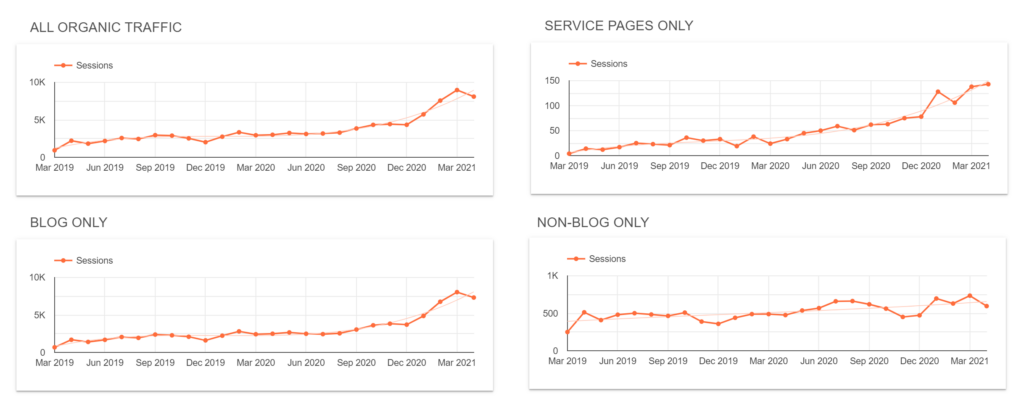Content Marketing Works – We Know Firsthand
Even as a digital marketing agency, we struggle to prioritize our own brand building, search engine optimization, and other internal marketing goals. It’s important to us to always make our clients happy, so our experts are often busy working on a client project instead of internal projects. But in early 2020, we ramped up content marketing and SEO efforts for ourselves. Boy, was it worth it.
Scope of Work
- Keyword research
- Topic planning
- Roughly 4 blogs per month
- 2 – 4 videos per month
- 2 – 4 social “shorts” per month
- Technical SEO audit
- Site speed/performance optimization
- A weekly newsletter that promotes blog and website content
The Challenge
With a small internal marketing team and an office full of digital marketing experts to lean on, Oneupweb set out to improve content marketing on our website and other digital properties. Our main challenges were planning content more strategically (and further in advance) and aligning keyword research and social media promotion.
The Results
These results are from April 2020 vs. April 2021:
- Organic website sessions increased 169%.
- Total bounce rate decreased (improved) 21.24%.
- We attracted several quality leads from blog content.
- We got 17 leads (vs. 0) from organic search, email and social media.
- Google organic search rankings improved drastically:
- Total keywords we rank for increased from 4,389 to 5,974.
- Keywords we rank for in the top 3 positions increased from 23 to 73.
- Earned featured snippets increased from 1 to 8.
Here’s a look at organic sessions trends for several traffic segments:

Is It Past Time to Prioritize Your SEO Efforts?
We get it – it’s hard to juggle everything you have going on. But once you do, it’s worth it. Want SEO and content marketing results that look like ours? Let’s talk.
